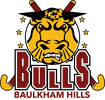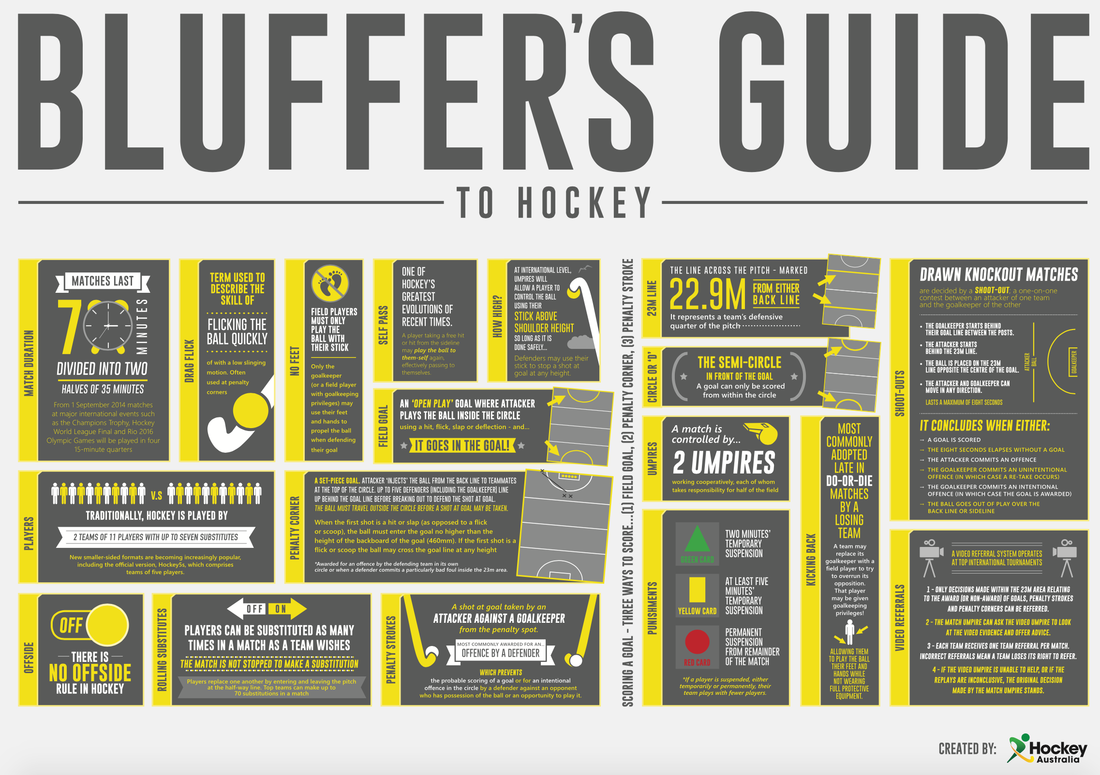Senior Mens/womens rules

Rules of hockey >>>Click link here
For a quick overview, here's a great guide.
For a quick overview, here's a great guide.
Junior RULES
You can find the rule modifications for junior hockey here.
Our Club's Code Of Conduct
Players
Parents and Spectators
Administrators and Officials
Umpires
Coaches
- Play by the rules.
- Never argue with an official. If you disagree have your captain, coach or manager talk to the official during a break or after the match.
- Control your temper. Verbal abuse of officials or other players, deliberately distracting or provoking an opponent is not acceptable or permitted in any sport.
- Work equally hard for yourself and your team. Your team’s performance will benefit; so will you.
- Be a good sport. Applaud all good plays whether by your team or an opponent.
- Treat all players as you would like to be treated. Do not interfere with, bully or take unfair advantage of another player.
- Co-operate with your coach, team-mates and opponents. Without them there would be no competition.
- Play for the fun of it, not just to please parents and coaches.
Parents and Spectators
- Encourage children to participate, do not force them. Remember that organised sport is for your children’s enjoyment, not yours.
- Focus on the child’s efforts and performance rather than winning and losing.
- Encourage players to always abide by the rules and the officials’ decisions.
- Never ridicule or yell at a child for making a mistake or losing a game. Positive comments are motivational.
- Remember that children learn best by example. Applaud good performance and efforts from each team. Congratulate all participants on their performance regardless of the game’s outcome.
- Respect officials’ decisions and teach your children to do likewise. Respect for your team’s opponents – without them there would be no game.
- Show appreciation of volunteer coaches, officials and administrators. Without them your child could not participate.
- Support all efforts to remove verbal and physical abuse from sporting activities. Do not use foul language or harass players, coaches or officials.
- Condemn the use of violence in any form, be it by spectators, coaches, officials or players.
Administrators and Officials
- Give all children an equal chance to participate.
- Ensure that rules, equipment, length of games and training schedules suit the age, ability and maturity level of players.
- Provide quality supervision and instruction for players.
- Remember that children participate for enjoyment. Don’t over-emphasise awards.
- Help coaches and officials highlight appropriate behaviours and skill development and help improve the standards of coaching and officiating. Ensure everyone involved in junior sport emphasises fair play, not winning at all costs.
- Give a Code of Conduct sheet to officials, coaches, players, parents and spectators and encourage them to stick to it.
- Think before you speak. Don’t say anything that could disadvantage anyone within your club or association.
- Compliment and encourage all players.
- If you are over 18 years of age, ensure you have a Working With Children Clearance. Apply for your clearance here: https://www.kidsguardian.nsw.gov.au/child-safe-organisations/working-with-children-check
Umpires
- Be consistent, objective and courteous when making decisions. Condemn unsporting behaviour and promote respect for all opponents.
- Emphasise the spirit of the game rather than errors.
- Be a good sport yourself. Actions speak louder than words.
Coaches
- Remember that children participate for pleasure and that winning is only part of the fun. Never ridicule or yell at a child for making a mistake or losing.
- Be reasonable in your demands on young players’ time, energy and enthusiasm.
- Teach your players to always follow the rules, which are unbreakable.
- Whenever possible, group players to ensure that everyone has a reasonable chance of success.
- Avoid overplaying the talented players. The just-average need and deserve equal time.
- Ensure that equipment and facilities meet safety standards and are appropriate to the age and ability of players.
- Develop team respect for the ability of opponents and for the judgment of officials and opposing coaches.
- Follow the advice of a physician when determining when an injured player is ready to recommence training or competition.
- Keep up to date with the latest coaching practices and the principles of growth and development of children.


